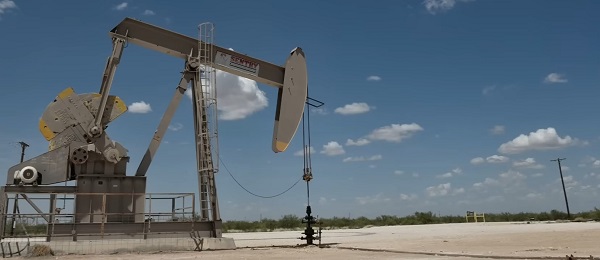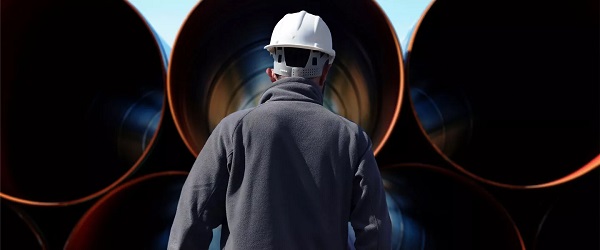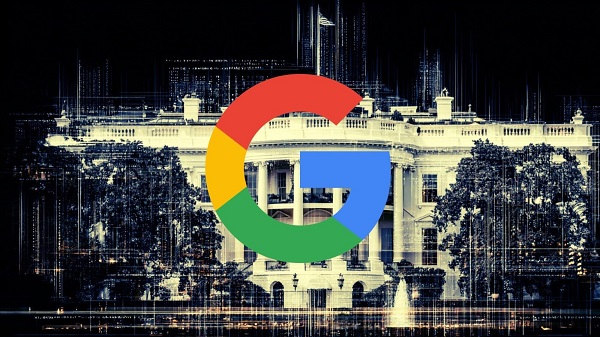Daily Caller
Mexico Hands Over Notorious Cartel Leaders To Trump Admin


From the Daily Caller News Foundation
The Trump administration extradited dozens of fugitives from Mexico as the White House tightens a noose around criminal syndicates south of the border.
Federal law enforcement took custody of 26 individuals, many of them leaders of dangerous drug cartels and human smuggling organizations that the Trump administration has deemed to be foreign terrorist organizations, according to the Department of Justice (DOJ). The Tuesday announcement came in the aftermath of President Donald Trump reportedly authorizing the use of military force against drug cartels.
Among those handed over to U.S. authorities were top leaders of the Sinaloa Cartel, Cartel de Jalisco Nueva Generation and Los Zetas cartels, according to the DOJ. Nearly every individual faces up to life in prison on various charges ranging from hostage-taking, drug-trafficking, kidnapping, human smuggling and a slate of other crimes.
Dear Readers:
As a nonprofit, we are dependent on the generosity of our readers.
Please consider making a small donation of any amount here.
Thank you!
“Today is the latest example of the Trump administration’s historic efforts to dismantle cartels and foreign terrorist organizations,” Attorney General Pam Bondi said in a public statement. “These 26 men have all played a role in bringing violence and drugs to American shores — under this Department of Justice, they will face severe consequences for their crimes against this country.”
“We are grateful to Mexico’s National Security team for their collaboration in this matter,” Bondi continued.
Those extradited to the U.S. included Martin Zazueta Perez and Kevin Gil Acosta, leaders of a powerful faction of the Sinaloa Cartel that have led hired gunmen armed with grenade launchers and assault rifles in attacks against Mexican military officials, according to the DOJ. Both men were involved in prolific fentanyl trafficking into the U.S.
Also taken into American custody were Leobardo Garcia Corrales, a close friend of Joaquin “El Chapo” Guzman who has allegedly trafficked fentanyl into the U.S. in exchange for AK-47s, grenades and submachine guns, and Luis Raul Castro Valenzuela, a Sinaloa Cartel gangbanger accused of kidnapping and holding hostage an American citizen, according to the DOJ.
Collectively, the 26 individuals have imported “tonnage quantities” of cocaine, meth, fentanyl heroin and other illicit drugs through the Mexico border, according to the Trump administration.
Just days before the extradition, Trump reportedly authorized the use of military strikes against Mexican drug cartels, a move that would mark a monumental escalation in the White House’s war against criminal syndicates. Immediately upon re-entering office, the president officially designated a number of cartels as foreign terrorist organizations, allowing U.S. authorization to freeze their financial assets, prohibit their entry into the country and the prosecution of members for supporting terrorism.
While the Mexican government has shown a willingness to help take on drug cartels and illegal immigration, their government appears adamantly opposed to U.S. military strikes against criminal syndicates within their territory, with Mexican President Claudia Sheinbaum Friday “absolutely” ruling out the possibility of U.S. military operations on Mexican land.
The Trump administration’s crackdown on illegal immigration across the southern border has wielded unprecedented success, with Border Patrol agents releasing zero migrants into the interior of the country in July, marking the third consecutive month of zero releases.
Business
Over $2B California Solar Plant Built To Last, Now Closing Over Inefficiency


From the Daily Caller News Foundation
By Hailey Gomez
The partially taxpayer-funded Ivanpah Solar Power Facility in California’s Mojave Desert is set to shut down in 2026 due to inefficiency in generating solar energy, according to the New York Post.
The $2.2 billion plant, which features three 459-foot towers, was greenlit in 2010 and completed in 2014. According to the New York Post the closure stems from the site being “outpaced by solar photovoltaic technology” and proving both inefficient and costly. The shutter of the site comes more than a decade ahead of its original 2039 end date, according to the Associated Press.
Speculation about Ivanpah’s early closure began in January, when Pacific Gas & Electric announced an agreement with the plant’s owners to terminate its contracts.
“Ivanpah Solar was built when developers were investing in many different types of clean energy. The goal was to find efficient and affordable technologies to reduce the need for greenhouse gas-emitting fossil fuels,” PG&E wrote in a January press statement.
“The technology had worked on a smaller scale in Europe. Spain had several concentrating solar projects of up to 20 megawatts. In the 2000s and 2010s, various private companies invested in large-scale concentrating solar power in the United States. But over time, solar photovoltaic technology raced ahead of its rival in affordability,” the press statement continued.
Funds for the massive plant partially came from former President Barack Obama’s Department of Energy, which in 2011 issued $1.6 billion in three federal loan guarantees under former Secretary of Energy Ernest Moniz. At the 2014 opening, Moniz touted federal support for the project, calling it “a shining example” of America’s leadership in solar energy.
“The Ivanpah project is a shining example of how America is becoming a world leader in solar energy,” said Secretary Moniz, as reported by PBS. “As the President made clear in the State of the Union, we must continue to move toward a cleaner energy economy, and this project shows that building a clean energy economy creates jobs, curbs greenhouse gas emissions, and fosters American innovation.”
In recent years, California has faced mounting problems with solar energy and refineries. In August 2024, major rooftop solar company SunPower filed for Chapter 11 bankruptcy in Delaware after struggling with issues like California’s rooftop solar subsidy programs and high interest rates.
Daily Caller
Shale Execs Complain Of ‘Broken’ Prospects In New Survey


From the Daily Caller News Foundation
In his remarks at this week’s U.N. Climate Week conference, President Donald Trump reminded the U.N. general assembly that “we have an expression, ‘drill, baby, drill.’ You know, that’s what we’re doing.”
But according to almost 80% of the dozens of shale oil executives who responded to the third quarter survey of oil and gas companies by the Dallas branch of the Federal Reserve, that’s all about to come to an end thanks in large part to the President’s focus on cutting oil prices as a means of controlling inflation.
“The uncertainty from the administration’s policies has put a damper on all investment in the oilpatch,” one executive said. Another warns that “drilling is going to disappear.”
Dear Readers:
As a nonprofit, we are dependent on the generosity of our readers.
Please consider making a small donation of any amount here.
Thank you!
One upstream company executive was especially angry at the administration, writing that the business “has been gutted by political hostility and economic ignorance. The previous administration vilified the industry, buried it in regulation and cheered the flight of capital under the environmental, social and governance banner…Now the current administration is finishing the job.”
The confidential format of the Dallas Fed’s quarterly surveys encourages the executives to speak bluntly in their responses, and the airing of such grievances is often the result. Most would no doubt temper their language in a meeting with the President or his senior officials, and other respondents did just that, noting that their industry and companies have been buffeted this year by an array of factors, both domestically and internationally.
“There are a variety of issues affecting our business,” one respondent points out. “First, excess in the global oil market is restraining oil prices near term. Second, there is continued uncertainty from OPEC+ unwinding production cuts. Third, trade and tariff changes and the resulting geopolitical tensions.”
He or she isn’t wrong. While shale drillers and producers have no doubt been frustrated by the constantly shifting tariff situation as the White House works out trade deals with dozens of countries, there are other major market factors well beyond any U.S. president’s control. The uncertainty around tariffs has without question increased industry costs, especially as they relate to tubular goods and other steel and aluminum products that are integral to their operations. But at the same time, there can be little doubt that the monthly machinations of the OPEC+ cartel have created a much larger impact on driving down the price of crude oil and thus, driving down company profits.
As for the geopolitical tensions the responder mentions above, Joe Biden’s four years in office were chock-full of such issues, many of which were left behind for Mr. Trump to deal with and resolve. The simple truth is that there has never been a time during its 166-year history that the U.S. oil and gas industry didn’t have to deal with such complications.
The oil business is an infamously cyclical one, as anyone who has been in it for more than a year understands. I spent more than 40 years in the industry and would need to use fingers on more than one hand to total up the number of boom-and-bust cycles that took place during that span.
The fact is that drilling levels in the United States have been on a steady decline since late 2018 in response to prevailing market factors far more than to the policies of the Biden or Trump administrations. As I pointed out shortly after last November’s election, the maturity of every major shale play meant that there would be no revival of “drill, baby, drill” in a second Trump presidency regardless of the administration’s policy direction. It just was never going to be in the cards.
The grievances and frustrations aired by these executives are entirely understandable: It’s a tough business that is impacted for better or worse by public policies. But pointing the finger of blame at Trump is a simplistic reaction to a highly complex set of circumstances.
David Blackmon is an energy writer and consultant based in Texas. He spent 40 years in the oil and gas business, where he specialized in public policy and communications.
-

 Business12 hours ago
Business12 hours agoOver $2B California Solar Plant Built To Last, Now Closing Over Inefficiency
-

 Autism2 days ago
Autism2 days agoAutism – what we know
-

 Alberta2 days ago
Alberta2 days agoFederal policies continue to block oil pipelines
-

 espionage1 day ago
espionage1 day agoCanada Under Siege: Sparking a National Dialogue on Security and Corruption
-

 Business11 hours ago
Business11 hours agoWEF has a plan to overhaul the global financial system by monetizing nature
-

 Business1 day ago
Business1 day agoGoogle Admits Biden White House Pressured Content Removal, Promises to Restore Banned YouTube Accounts
-

 Business13 hours ago
Business13 hours agoThe Leaked Conversation at the heart of the federal Gun Buyback Boondoggle
-

 Opinion12 hours ago
Opinion12 hours agoThe City of Red Deer’s financial mess – KPMG report outlines failure of council to control spending





